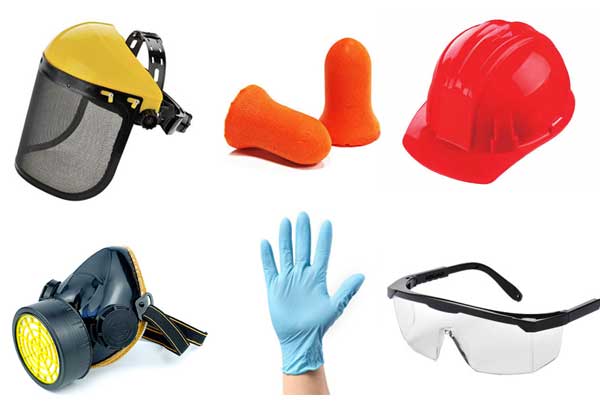Personal protective equipment, commonly referred to as "PPE", is equipment worn to minimize exposure to hazards that cause serious workplace injuries and illnesses. These injuries and illnesses may result from contact with chemical, radiological, physical, electrical, mechanical, or other workplace hazards. Personal protective equipment may include items such as gloves, safety glasses and shoes, earplugs or muffs, hard hats, respirators, or coveralls, vests and full body suits.
Why we need PPE at work? Because you are important! You only get one life, so protect it.
It depends on the environment you work in. Generally speaking, the following protections are often used.

If something hits your hard hat, you can replace it. If something hits your head, you can't just get a new one. Hard hats are common on construction sites. Safety Helmet is designed to protect against flying or falling objects that would otherwise impact or penetrate the worker. Some hard hats are equipped with accessories such as face shields and earmuffs.
Eye and face protection are equally as important as head protection. Safety goggles, spectacles and full-face shields can give you the protection needed for the eyes and face.
Construction jobs typically require the use of hands. Each year, around 150,000 hand injuries are reported. Occupational skin diseases such as contact dermatitis, skin cancers, and other skin injuries and infections are the second most common type of occupational disease and can be very costly. Because a lot of work is done with the hands, gloves are an essential item in providing skin protection. Some examples of gloves commonly used as PPE include rubber gloves, cut-resistant gloves, chainsaw gloves and heat-resistant gloves. Using gloves helps to avoid hazards usually involved when working with chemicals, glass, sheet metal, electricity, hot materials or slippery objects.
Industrial noise is often discounted as an occupational hazard since it isn’t visible to the eye. However, 22 million workers in the United States are exposed to potentially harmful noise levels annually. According to the National Institute for Occupational Safety and Health, about 82% of occupational hearing loss cases occurred to workers in the manufacturing sector. The Occupational Safety and Health Administration establishes occupational noise exposure standards. Earplugs and earmuffs are common hearing protection tools. It is important to note that earmuffs are more effective in reducing high-frequency noise while earplugs are more effective for reducing low-frequency noise.
In workers' compensation cases, a common key factor that lawyers deal with is whether the individual uses PPE. If the employer provides PPE but the worker does not use it, this usually results in the worker being liable.
But if you faithfully use all the personal protective equipment you provide at work, your employer will take full responsibility. Even for work that "just takes a few minutes", it is absolutely not exempt from wearing PPE.
Feeling good after work does not mean that you have properly protected your body. Exposure to different chemicals and compounds at work can have long-term effects on your body. Mesothelioma is a good example. In 2017, an estimated 3,000 Americans were diagnosed with this rare cancer each year.
Of these diagnoses, 70% to 80% come from exposure to asbestos fibers used in construction materials in many different industries. Current safety regulations require personnel working with asbestos to wear specific PPE and to shower and change before leaving the workplace.
Think of PPE as all kinds of support your work needs you to complete. It may be more physically demanding or dangerous than ordinary office work, but the equipment provided makes you feel that the physical risk is small.
PPE items such as seat belts can provide stability for heavy lifting. Measures should be taken to prevent the simplest trip and fall injuries. All workers should confidently question the effectiveness of the PPE provided and have a certain understanding of the standards that the equipment needs to meet.
Copyright © Hebei Sinotools Industrial Co.,Ltd. All Rights Reserved | Powered by  Sitemap
Sitemap